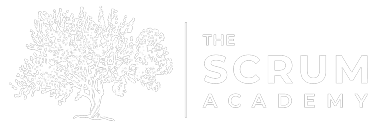Let’s face it – most Retrospectives tend to be dull and listless. I’m not sure if this is because of a monotonous format, lack of preparation, too many silly games that don’t connect to real work, failure to follow through on action items or simply that people have given up on improving their Scrum Team.
Whatever your reason(s) for why Retrospectives are not working for you and your Scrum Team, it doesn’t have to stay that way. With a few small adjustments, Retrospectives can be transformed from just another sad meeting into an engaging, problem-solving session that allows your Scrum Team to inspect-and-adapt itself to its ideal state.

How We Transform Your Retrospectives in Three Steps
- Carlton schedules a Zoom call with key members of your Scrum Team to learn what’s working on your team, what challenges remain and how they would define a successful Retrospective. During this call, he will share with you a simple framework on how to build an effective Retrospective.
- Carlton then designs a custom Retrospective for you and your Scrum Team based on goals you established during your call with him.
- Next, Carlton will facilitate your custom Retrospective for the Scrum Team. The goal is to show you how to create a positive experience that will lead to concrete action items. At the conclusion of the Retrospective, Carlton will conduct a short retro of the Retrospective, offer recommendations on how to improve future Retrospectives and schedule any follow-up, if needed.
This tune-up is perfect for:
- Scrum Teams struggling to identify meaningful areas for improvement during a Retrospective.
- ScrumMasters, Product Owners, Developers and other people who are frustrated by wasting time in Retrospectives and want to skip them.
- ScrumMasters who know Retrospective can be so much more than a group of people mumbling about, “What went well…, What didn’t go well…, What can be improved,” but don’t know how to get there.
Participants will learn how to:
- Practice creating action items that address impediments which affect Scrum Team performance, software quality or psychological safety.
- Identify each of the five steps to an effective Retrospective.
- Describe how much preparation is needed to have an effective and efficient Retrospective.
At the conclusion of this tune-up, your Scrum Team will have seen how to run an effective Retrospective and have a toolkit of techniques to increase their engagement. That sounds like a win to me!

